'Young people are scared, even those carrying knives'
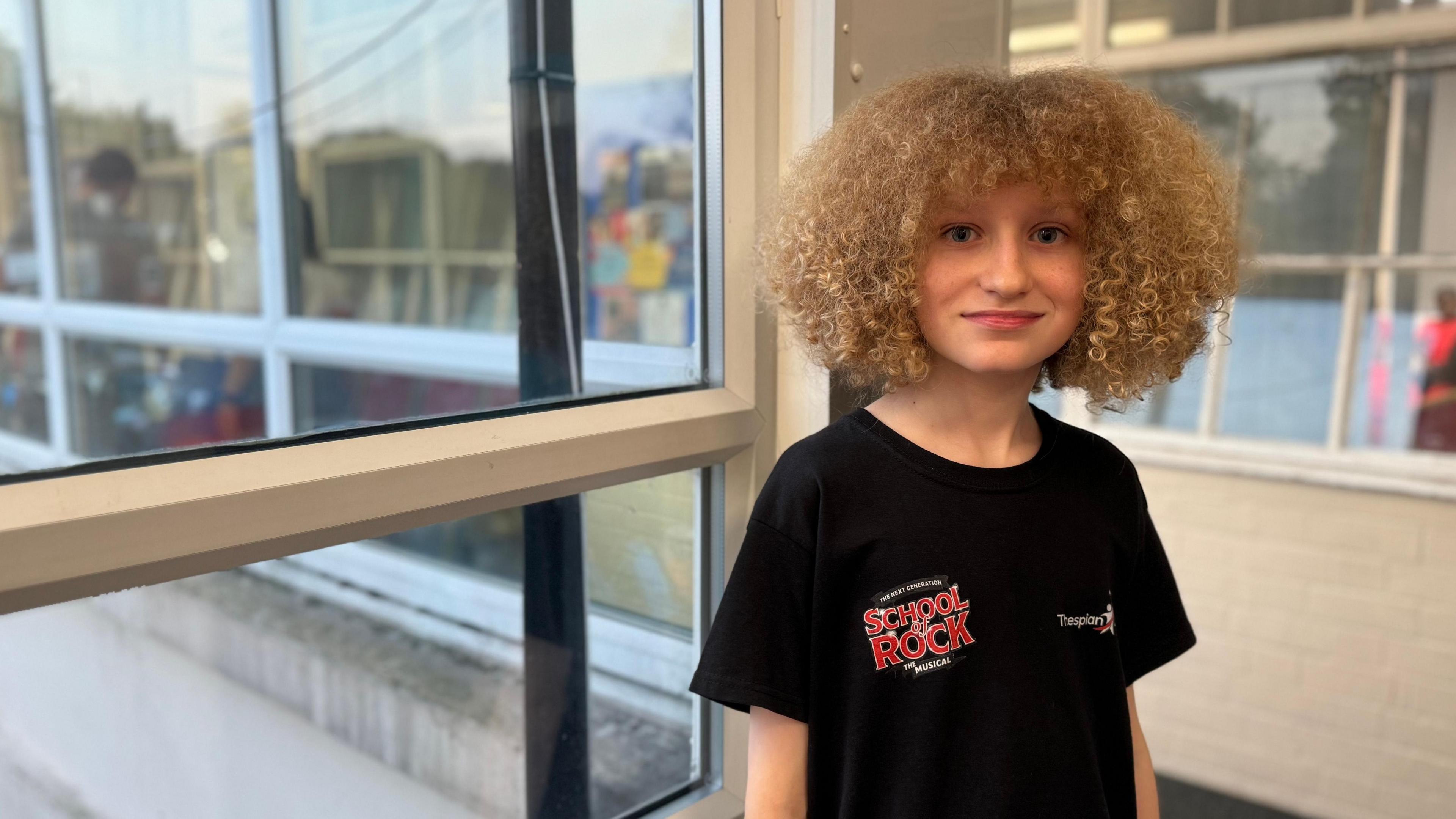
Drama student Ben says the rise in knife crime makes him scared to leave the house
- Published
Children do not want to die or take someone's life, but they are carrying knives because they are scared not to, pupils say.
The drama students in Walsall raised the issue during sessions run by the James Brindley Foundation (JBF), set up in memory of James, 26, who was stabbed to death in 2017.
"Nobody wants to lose their life to knife crime, and I don't think anyone wants to take a life with [a knife], but if they end up carrying one, sooner or later they are going to end up using it," says 13-year-old Ben, from Cannock.
The young people were at a musical theatre class at Brownhills Community Association in Walsall, the same town where Mr Brindley died.
Walsall has been the scene of multiple knife-related incidents, with the West Midlands Police area having the highest rate of knife crime offences in England and Wales in 2023.
'Want to feel powerful'
James was walking to his parents' home in Aldridge when he was attacked, sustaining a knife wound through the heart.
His family has described how his loss has devastated their lives, but they now say he is their "inspiration to create a worthy and lasting legacy".
Nicola Neville, from the JBF, external, says she was shocked to hear so many of these students had experienced knife crime first hand.
"The big message we get from young people is fear. A lot of young people are scared, even the ones that end up carrying knives," she says.
"It's normally because they've felt unsafe, unprotected and want to feel more powerful".
Isabelle, 12, tells the BBC: "Last year, there was a person who came into school armed with a knife because he was being bullied. He threatened a group of girls."
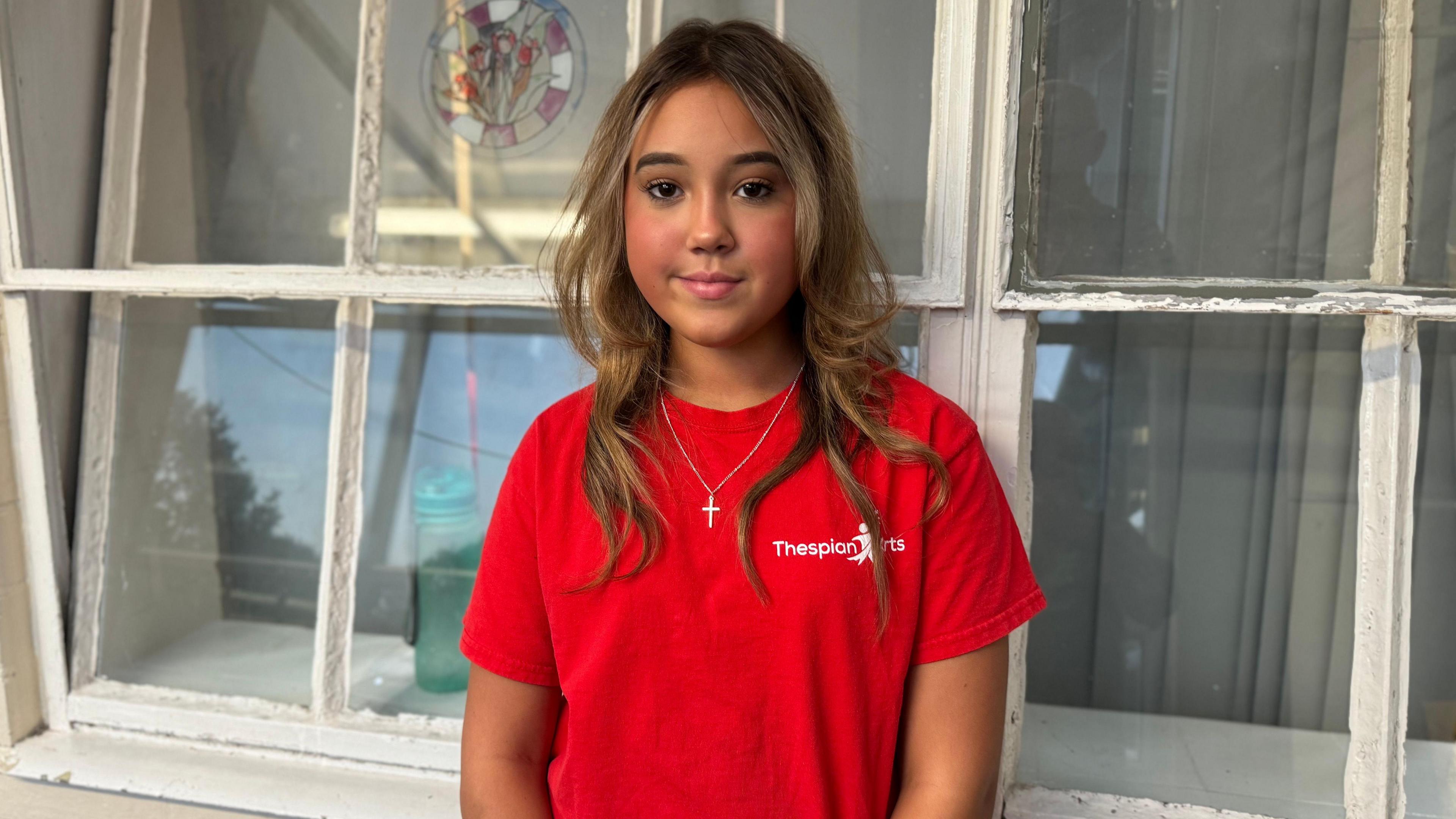
Isabelle says there have been incidents where students have brought in knives to school
The foundation offers mentoring to children who are involved in crime or are on the edge of it and works to help them make better life choices.
Foundation workers also start conversations with young people about knife crime to find out what is happening in their communities.
"Our goal is for everyone in the UK to walk down the street without the fear of youth violence," Ms Neville says.
The students in the session are aware of knives being in close proximity.
"People bring knives everywhere. You could even find one on the edge of the street, because people aren’t very wary of where they’re putting them," Isabella says.
The JBF has recently raised funds for four knife bins in Walsall.
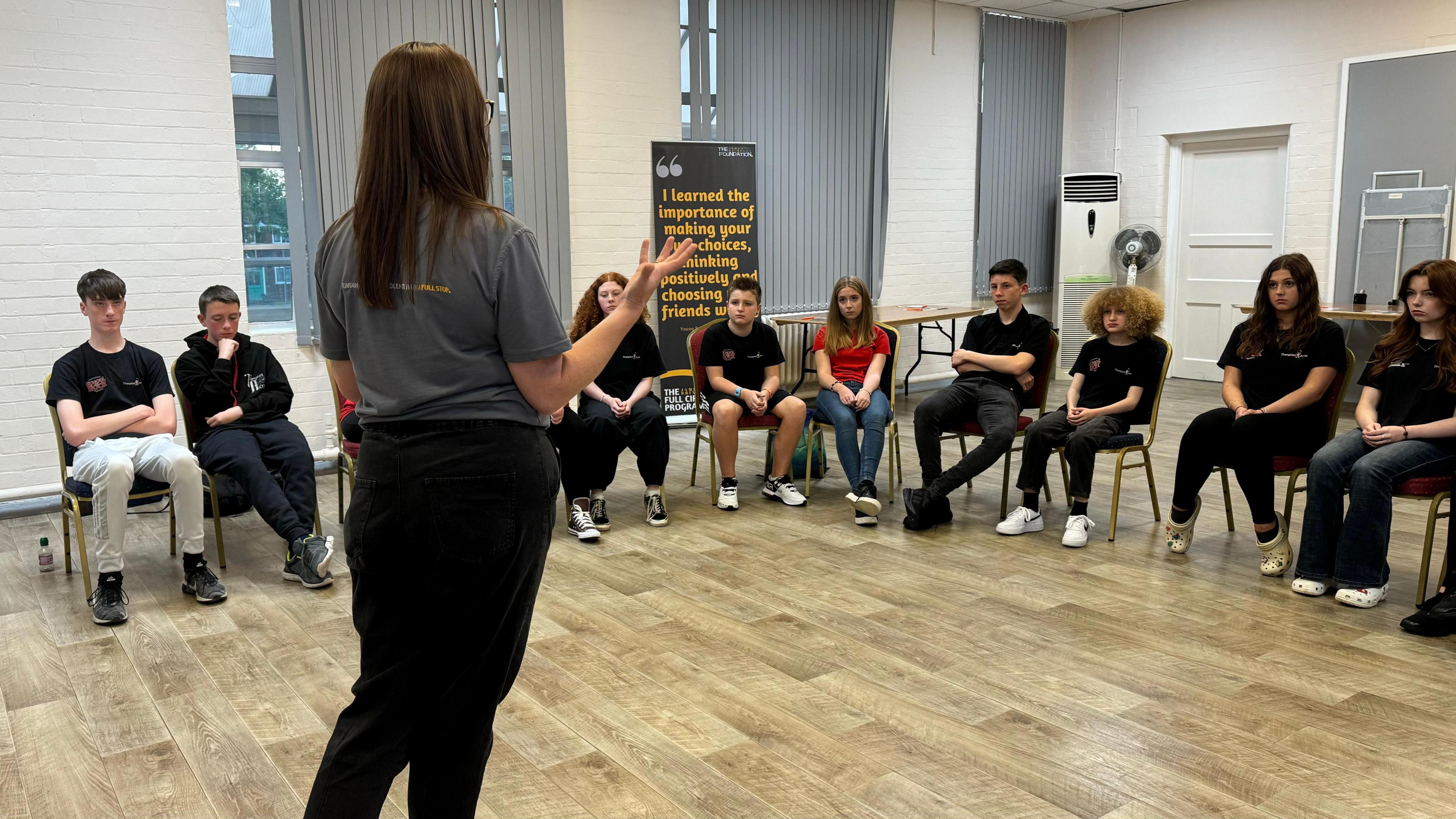
The James Brindley Foundation run sessions to educate children on youth violence
On Tuesday, a new law came into force making it illegal to own zombie-style knives and machetes.
The law covers the manufacture, supply, sale, possession and importation of these weapons.
However, there are some reservations from the drama students.
"I don't think it'll make much of a difference, because you can still use steak or kitchen knives," one student says, matter-of-factly.
"I hope it will deter people from picking up a knife, and knowing the consequences, it might stop them."
Ben adds: "But I also feel that people will find other ways of causing harm and inflict pain on people."
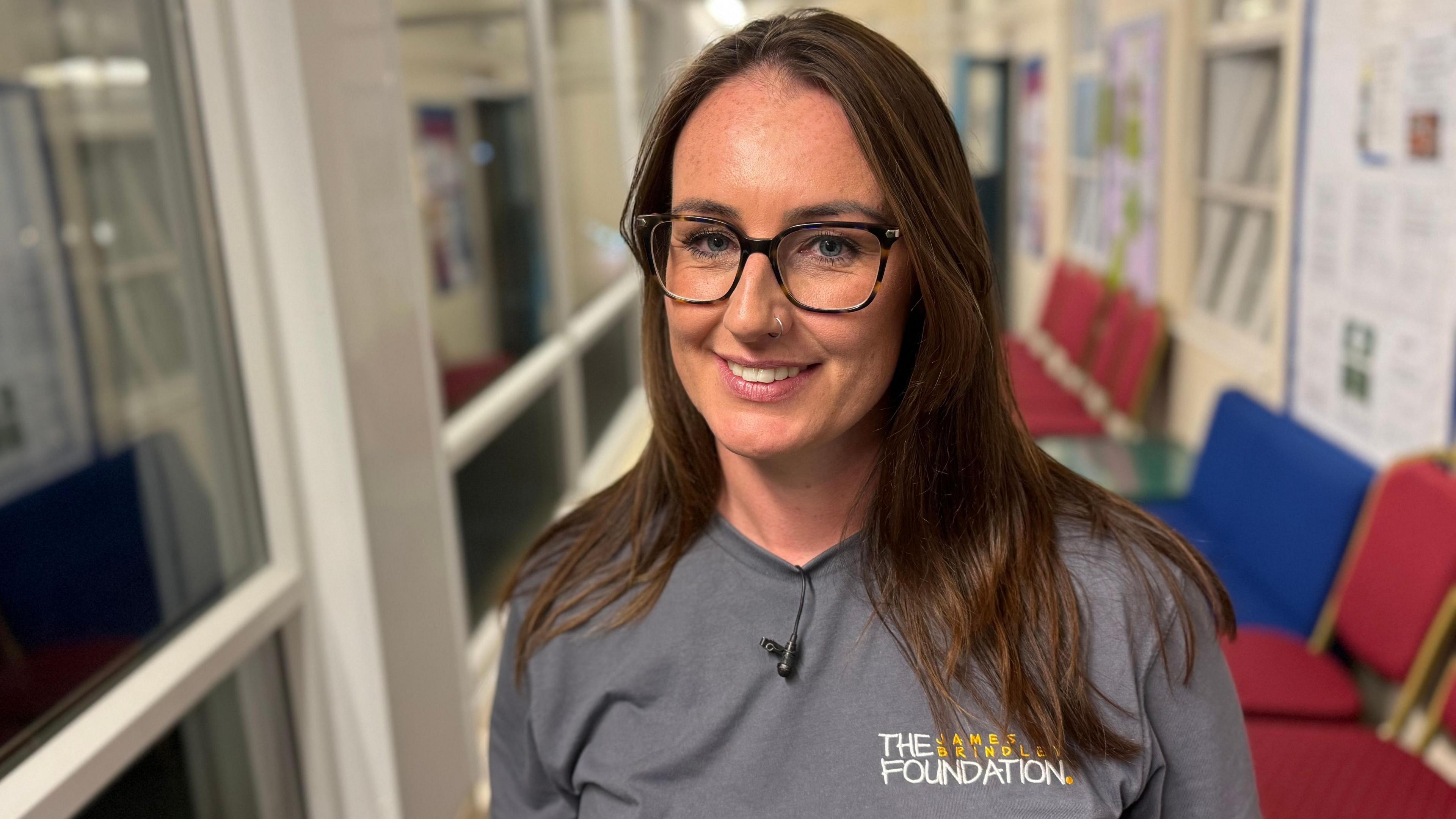
Nicola Neville says early intervention is key
Annabel, 14 and from Aldridge, says the law may "dim down" the issue but feels it can never stop knife crime.
"I think there's probably people out there that think they need [a knife] for protection," she says.
She has seen people being chased down the road outside her school by people carrying knives.
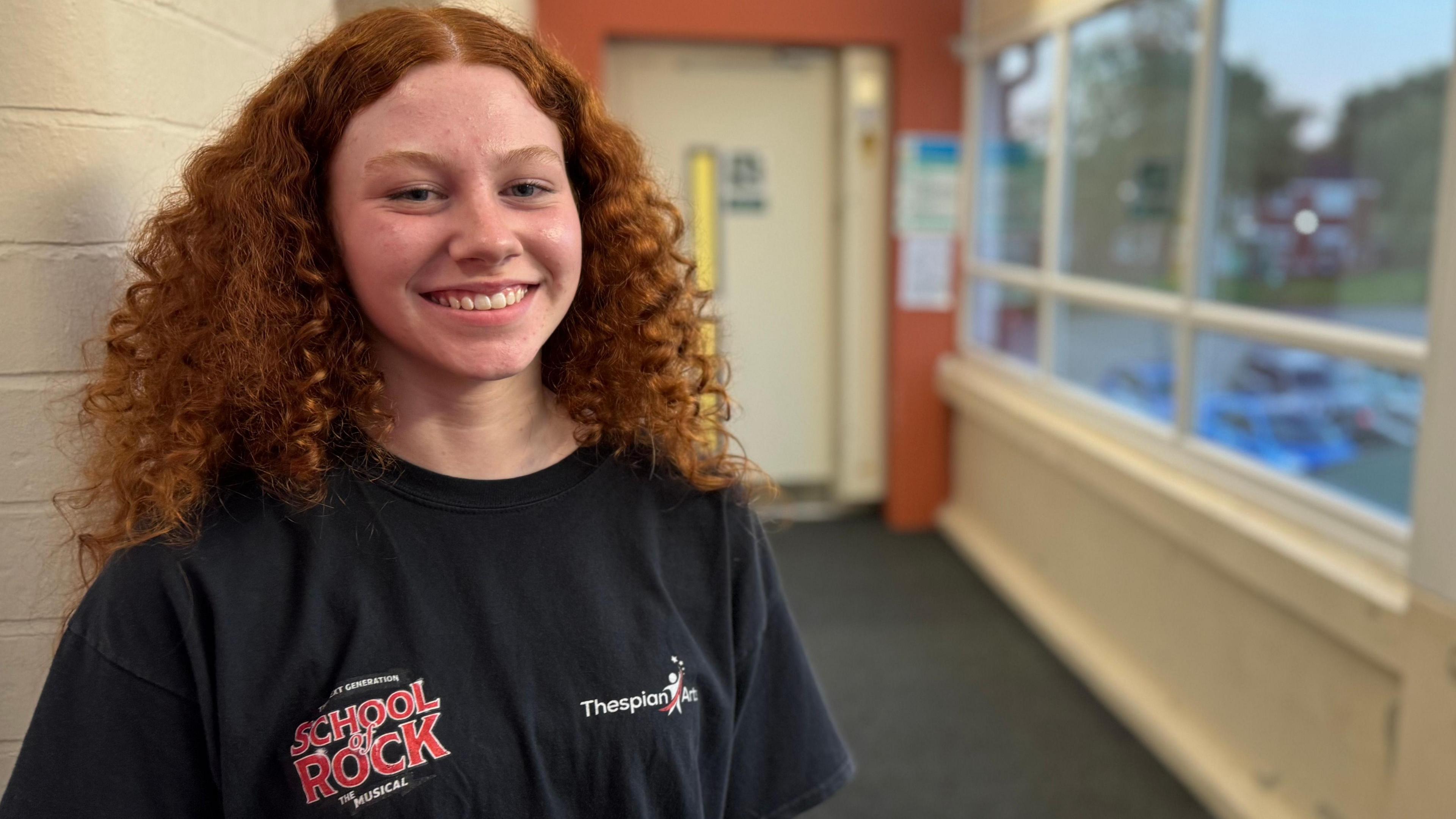
Annabel worries the new law won't stop knife crime
While Ms Neville believes the new law will make a difference, she thinks early intervention is key.
"Young people need more positive activities, more outlets, more support. Youth groups are vital in that work," she says.
She explains that people who work with children also need to be educated, alongside young people themselves.
"Let's help young people not get into that situation in the first place," she says.
"Let's support them prior to them feeling like they need to carry a knife or be in a gang."